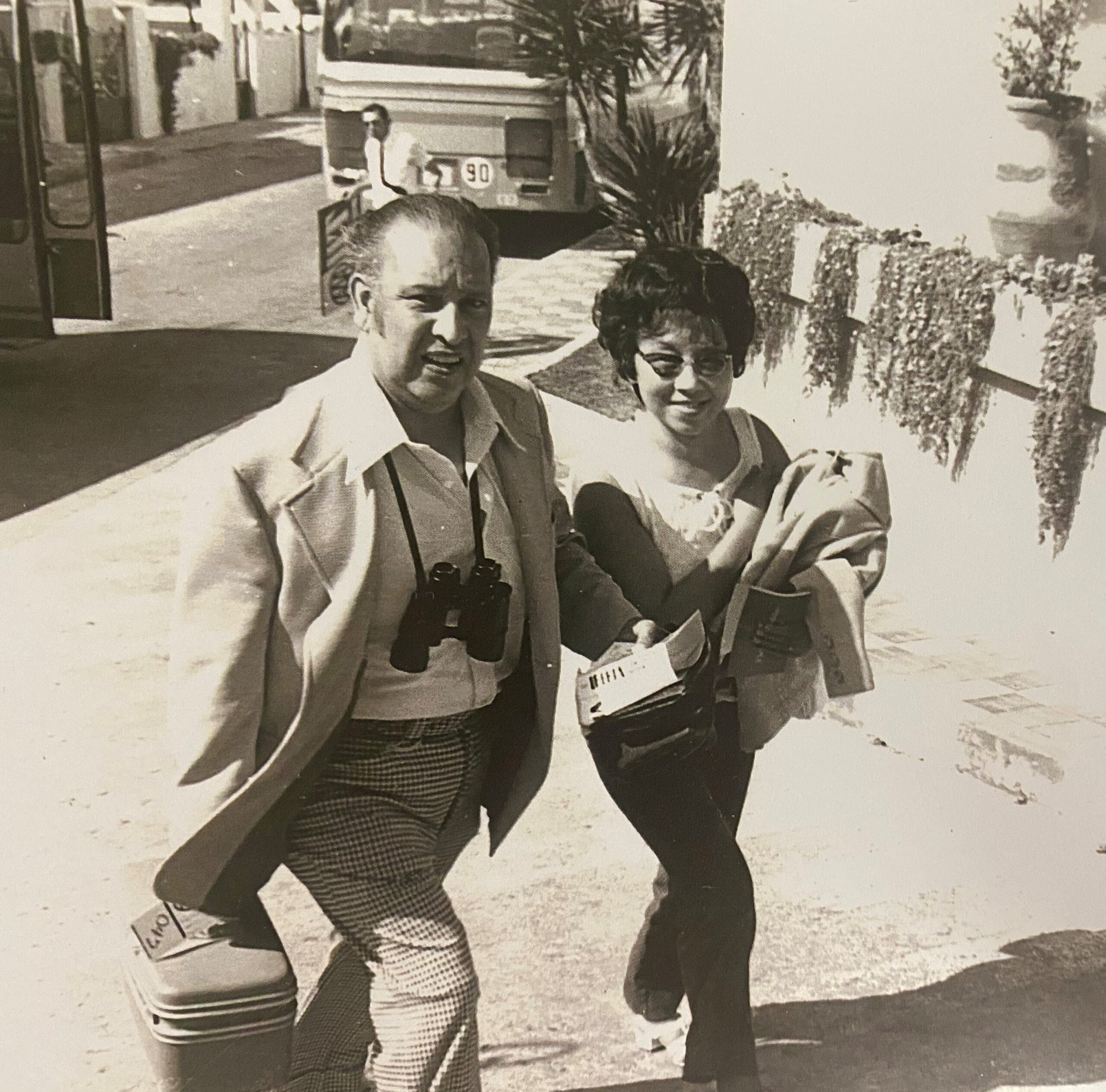
My Asian-American Family History
By Charlie Kovanda, Zeta Rho-Ohio
Charlie Kovanda, Zeta Rho-Ohio, an alumna initiate and former Delta Gamma Foundation staff member, is currently a mother to a 2-year-old daughter alongside her full-time job as a Vice President in Diversity, Equity and Inclusion for JPMorgan Chase & Co. Charlie considers herself a wine and cheese enthusiast and also enjoys running, reading and watching great Netflix shows. During Asian American and Pacific Islander (AAPI) Heritage Month, she wants to share her story in hopes to spread awareness, shed light on the needs of the AAPI community and encourage action from AAPI allies and sisters.

“You aren’t Asian.”
“No wonder you are so smart – you’re Asian.”
“Where are you from?” “No, where are you REALLY from?”
These are just a few of the phrases I’ve heard regarding my Asian-American heritage. Most were well-intentioned and I shrugged them off as harmless – I think a lot of people do that – shrug off micro-aggressions and assume best intent. However, looking at what is happening in the Asian or Pacific Islander community right now, maybe I should have spoken up sooner. Maybe all of us as sisters, need to be more comfortable speaking up when we see or hear this type of behavior.
Now May is Asian Heritage month, and while I would love to celebrate my rich heritage, I can’t do that without also shining the light on some ways we as a sisterhood can come together to support and ally alongside the Asian community.
But first, let me share my family history… My grandma was born in Shanghai in 1917, just seven years after China had asked Britain for help stopping the Opium trade with India. It meant my grandma was born under British control and had dual citizenship. My grandma came from the wealthy class and even bound her feet, a symbol of status and beauty. She was also the second girl born into her family, so she was sent to live in a Catholic Convent.

Years later, she met my grandpa, a Native American man of Hispanic heritage, who happened to be in China during World War II. He looked at her tiny frame and her “too-big-for-life” sassy attitude and fell in love. The rest is… my family history. That history includes their marriage in 1937 and my grandma’s immigration to the U.S. where there was a lot of anti-Asian hatred because of the war. At the time, Japanese and Chinese people were grouped together and often detested.
In 1942, President Franklin D. Roosevelt signed Executive Order 9066 – which ordered the removal of resident enemy aliens from parts of the West, vaguely described as military areas. It’s funny how presidents can influence xenophobic hatred of an entire population.
Now we are living in 2021, and I am a proud mixed-race American, who feels called to honor and speak up about my Asian heritage. Here are a few of my thoughts about what’s going on now in our world – these are my thoughts alone and do not represent the entire Asian population:
- I often feel my Asian heritage is excluded from discussions around racism – Not always, but often, I feel we as a society speak about racism in terms of Black and Hispanic people and exclude other people of color. Perhaps this is due to the misinformed myth that people of Asian descent are part of the “model minority” meaning people often assume Asian people don’t need as much help because they are doing well enough on their own. The truth is that Asian-Americans have varied experiences as a population – they have the largest wealth gap, with some households making well above average and others living below the poverty line. I sometimes (maybe erroneously), feel as if the Asian community has not been adequately prioritized the same when it comes to diversity and inclusion initiatives. I know it’s not a competition – there are some systemic issues that impact Black and Latinx individuals differently and often more severely – but that doesn’t negate the fact that I sometimes feel like being Asian isn’t “enough” to necessitate energy or attention in this space. Am I alone in this?
- Recent attention has felt a little… performative to me – All over my social media channels I see posts and banners and profile frames using #StopAsianHate. And I appreciate that public show of support. I also have been a part of the calls and conversations my company has hosted, and I know those are important platforms to allow for people to articulate and express their feelings so that we can work toward action. I appreciate that our leadership has made it a priority to stop and acknowledge the humanity and hear from our Asian population. However, I am left feeling that none of those actions will produce real or lasting change. I would challenge anyone to review some of the resources linked throughout the article – sign up for free trainings and COMMIT to speaking up when you hear anti-Asian sentiments of any kind. Here is a great article with real examples for how to combat Anti-Asian sentiments.
- The onus for fixing the problem often falls on the people who have been impacted – Not always, but often, it seems like when violent occur towards one demographic, we tap leaders of that demographic to share their perspectives, their stories and recommend solutions. While this is my experience, I’ve heard similar thoughts echoed by Black colleagues. Asian voices should be elevated; it makes sense to have Asian employees speak at times like this. But we can’t allow for their voices and stories to represent the entirety of our community. It also forces the emotional burden of “solving” onto people who may be hurting, feel unsafe or not want publicly to express their feelings at all.
- Maybe we are not as far removed from racism as we thought – I would love to believe that we have come a long way from 1942 when my grandma faced racial prejudice simply because of her looks. But maybe we have just gotten better at some of the obvious and outrageous racism, and we have allowed for some of the more nuanced attitudes to stay? I do not look at this as a negative, but more as an opportunity to strive for real change and improvement. Maybe staring at our issues transparently, vulnerably, honestly, would set us up to solve for them better?
Now I have a daughter. She looks racially ambiguous, but I see her great grandma in her tiny face. When my daughter smiles and her nose crinkles up, her eyes look like my eyes, looks like my father’s eyes, looks like my grandma’s eyes. I look at her with wonder and worry about what people will think about her or how they will treat her. I hope that she can experience the same love and acceptance from Delta Gamma that I have received. In fact, I hope that this sisterhood is one that will stand alongside her to help her overcome some of the hurdles society might throw her way. I hope she truly gets to experience the bonds of friendship that Delta Gamma offers. I hope that she has a sisterhood that allies around her and advocates for her needs as she grows up. It is for her that I put my thoughts down. It is for her that I write this and urge you to action.
Check out the articles and resources below and don’t be afraid to join in on this conversation.
Resources to help stop Anti-Asian American Hate:
- Hollaback! – an external site dedicated to ending disrespectful behavior or harassment
- Bystander Intervention Training – a FREE hour-long training to stop anti-Asian/American and xenophobic harassment
- Anti-Racist Resource Guide – a beginner’s guide on how to diplomatically and respectfully confront implicit bias
- Flip The Script: Race in the Workplace – a quick guide on common micro-aggressions relating to race or ethnicity at work
- Standing Against Hatred – a collection of stories from Asians across the globe and their recent experiences
- How to Respond to Coronavirus Racism – find speak up strategies to let people know you are not ok with xenophobic comments about coronavirus or anything else.
